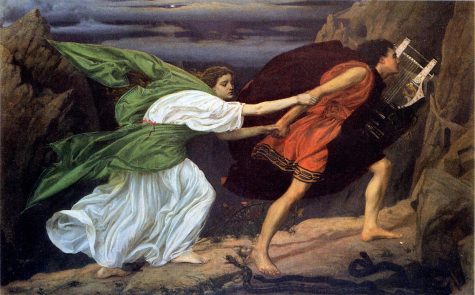February Fables
Ah, February. It’s the pearl in the oyster. It is veritably unique among its dozen counterparts, and there are some facts that everyone knows about it. First of all, it is objectively the most challenging month to spell. Secondly, it is also the shortest month of the year.
As well, the ancient Roman festival of health and fertility, Lupercalia, was in February. This fact is of utmost importance due to a variety of factors. The martyr Saint Valentine was killed on February 14th, and the church detested Lupercalia, considering the pagan celebrations too vulgar, and more importantly, too non-Christian to be allowed. Thus an easy solution emerged: declare a holiday to celebrate Valentine’s martyrdom, and naturally, all the pagan celebrations will stop as the citizens bustle around, celebrating a murder.
Fortunately, humanity often ignores nature’s whims and throes, and the association between mid-February and love continued. If not for the Roman citizens of 270 A.D., where would I get my sugar intake for the month of February?
While the connection to passion and fertility started out much stronger than that with the nebulous concept of love, the holiday slowly started gaining its modern conception as centuries passed. Valentine’s greetings were spoken and then later written. By the mid 15th century, Valentine’s Day had essentially become what it is today (without the traditional American hyperconsumerism).
However, February this year not only brings Valentine’s Day. It also carries with it the Lunar New Year, celebrated by Asian countries and peoples across the globe and immortalized in dance at Lakeside assemblies. And by broadening our lenses to include a wider variety of cultures and folklores, we can explore love stories from every month of the year.
The Cowherd and the Weaver Girl
This first story comes from China, and is well known in variants among various Asian cultures. Zhinu, a weaver girl, falls in love with Niulang, the cowherd. However, their love is forbidden by the girl’s father, and he separates them across the heavenly river. Not only are their physical forms apart from each other, so does the celestial body they represent. Zhinu is the star Vega, and Niulang is the star Altair; these stars lie on opposite sides of the Milky Way, as the heavenly river blocks Zhinu and Niulang.
However, on the seventh day of the seventh month in the lunar calendar, magpies, in great flocks, would gather at the river. Keenly aware of these split lovers’ sorrow, they form a bridge with their bodies, allowing Zhinu and Niulang to reunite for one day.
This date, 7/7 in the lunar calendar, marks the Qixi Festival and is the Asian parallel of our Valentine’s Day.
Orpheus and Eurydice
Orpheus was known to be an amazing musician during his lifetime, but after, he was immortalized in this Greek tragedy of love. He meets Eurydice, a nymph, and falls in love with her. After courting and dating, they decided to marry, absorbed in their love. However, misfortune strikes on their wedding day, and a poisonous snake bites and kills Eurydice. Shaken with grief, Orpheus strikes up a plan to save his beloved. Finding his way to the Underworld, the place where the dead are taken, he barged up to Hades, who rules over this realm. He played out his sorrow in a song that mesmerized the god of death, and Hades granted him his wish. However, the god was not so simple and placed a condition on Orpheus: Eurydice would follow him back to the world of the living, but he could never look back to ensure that she was following. Desperate for any solution, Orpheus agreed and began the trek back without that assurance. He continued unabated by his anxiety almost up to the surface. However, as he glanced up into the shimmering beauty of the world, he recalled the purpose of his endeavor: to save his loved one. Unable to resist, he swung his head backwards, and stopped in shock. Eurydice had been following the whole time, but now she was fated to never return and share the world with Orpheus. Tears streaming down her face, she disappeared back into the land of the dead, and a shaken Orpheus vowed to never love again.
By appreciating these stories of love and anguish, resistance, and tenacity, we can appreciate people’s storied lives and flourishing cultures from the past and present.

